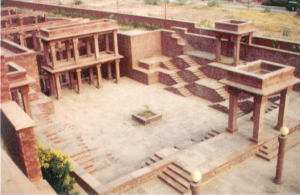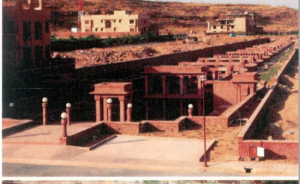Tuesday 15 October 230-4pm. Rm 223 Moses Hall
Presented by A Mridul, Architect, Jodhpur, India
Step wells are large wells that allow people to descend via steps to the water table, where they can obtain water to carry back up to the surface. These features were widespread in India and in active use from the 2nd century AD to the end of the 19th Century, when they were superseded by more modern water infrastructure of canals and pipes and largely forgotten. Today these step wells are being revisited as sustainable water management features, and appreciated for their exquisite beauty. Following traditional patterns, a new such step-well was recently built in Jodhpur, a water-stressed city on the fringe of the Thar Desert of India, with capacity of >17 million liters of rainwater. Architect A Mridul discusses step wells and his design for the Jodhpur well, using site-quarried sandstone and local artisans.
A Mridul is a Jodhpur-based architect whose practice emphasizes integrating cultural heritage, contemporizing traditional practices to make them timeless and relevant to current generations. He is passionate about the ancient water heritage of India and has been campaigning for its regeneration, mainstreaming and replication.
This talk is presented as part of the Institute of International Studies Interdisciplinary Faculty Seminar Water Management: Past and Future Adaptation and is co-sponsored by the Institute for South Asia Studies.

